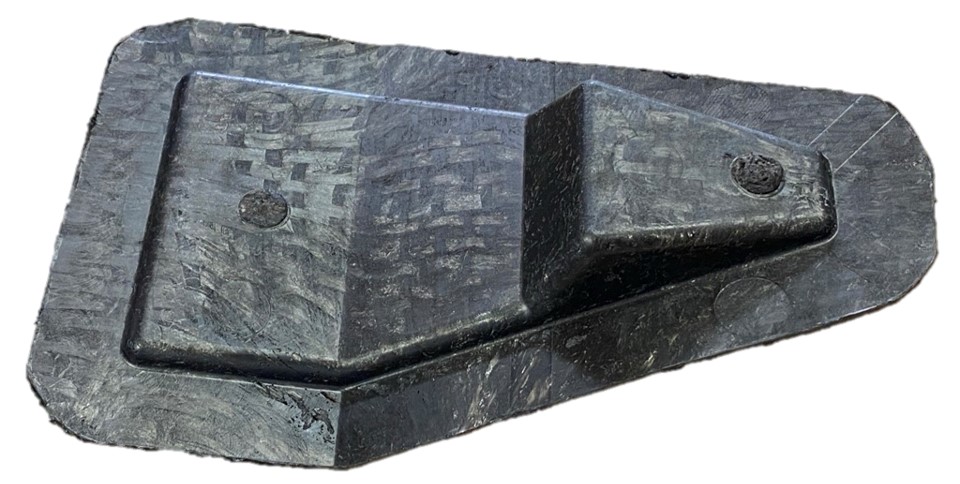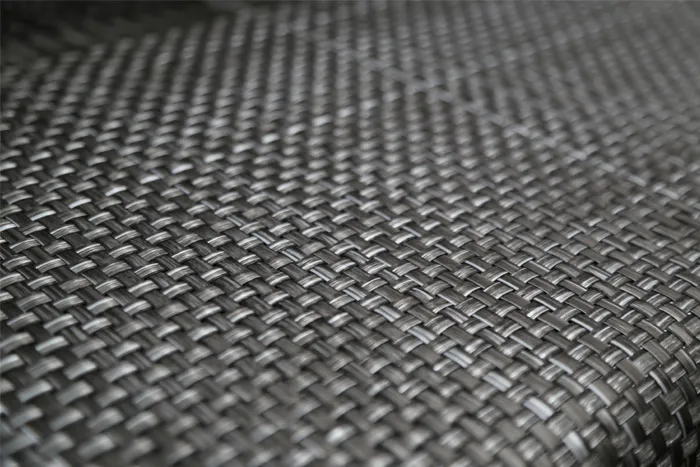R-CARBON: technical fabrics with up to 54% less carbon footprint thanks to recycled carbon fibre
The R-CARBON project, with technological collaboration from Eurecat, has led to the development of innovative technical fabrics made from hybrid yarns of polyamide and recycled carbon fibre (rCF). This initiative has been supported by the Catalan Waste Agency (ARC), under the funding programme for circular economy projects.
The aim of the project was to give a second life to industrial waste from decommissioned composites, transforming them into structural fabrics suitable for thermoforming processes, laying the groundwork for their industrial application in recyclable composites.

Demonstrator: consolidated part manufactured with the rCF fabric.
Blackfabric was responsible for the development of the structural technical fabric and the consolidation of sheets through thermal processes, contributing its expertise in technical fabrics for composites. Eurecat, for its part, carried out key tasks such as the thermal and mechanical characterisation of the new materials, the manufacturing of demonstrators with complex geometries through thermoforming, and a life cycle assessment (LCA).
One of the project’s most notable outcomes was a reduction of up to 54% in carbon footprint compared to equivalent materials made with virgin carbon fibre. This figure, validated through the LCA, represents a significant milestone in the transition towards more sustainable solutions in the high-value composite materials sector.
The fabrics developed with rCF retain competitive mechanical properties, proving their technical viability for applications in sectors such as automotive, sporting goods, or consumer products, where sustainability is already a key requirement. The possibility of manufacturing recyclable materials with solid mechanical performance and a lower environmental impact helps reduce reliance on virgin resources and promotes circularity within the value chain.
R-CARBON represents a step forward in the innovation of sustainable technical fabrics, reinforcing the sector’s commitment to more responsible production with a reduced environmental footprint. This project has demonstrated that it is possible to significantly reduce the carbon footprint through the use of recycled fibres.





